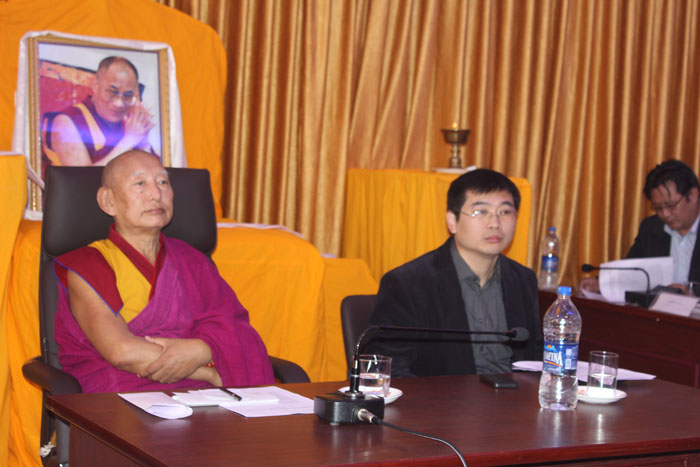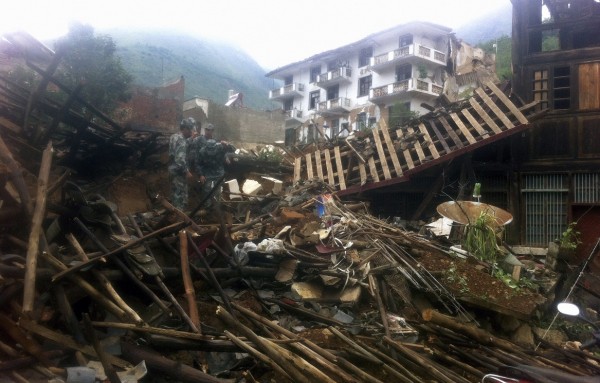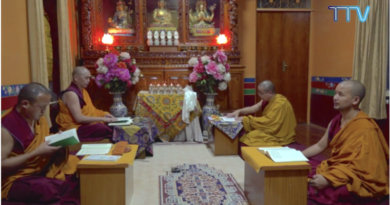TCHRD, PEN Tibetan Writers Abroad organize event in honour of jailed Tibetan writers
DHARAMSALA, Nov 19: Tibetan Centre for Human Rights and Democracy (TCHRD) and PEN Tibetan Writers Abroad commemorated the 33rd anniversary of the PEN International’s Day of the Imprisoned Writer in Dharamsala on Nov 15 by organizing an event to highlight the fate of Tibetan writers inside Tibet, who are currently imprisoned for exercising their conscience through writing.
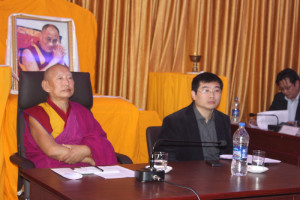
The event held at Peace Hall, Kirti monastery in Dharamsala included discussions on the critical human rights issues faced by Tibetan writers inside Tibet, a photo exhibition and release of four books.
His Eminence Kirti Rinpoche, the head of Kirti monastery in exile was the Chief Guest and Chang Ping, an exiled Chinese journalist and columnist was the special Guest at the event which was attended by among others, members of Tibetan Parliament-in-exile, Dharamsala-based Tibetan writers and intellectuals as well as journalists.
Addressing the crowd, His Eminence Kirti Rinpoche spoke about the importance of Tibetan language and literature in reflecting the reality of the situation in Tibet and encouraged Tibetans living in free countries to use their literary skills in highlighting critical situation inside Tibet. He further added that the Tibetans hold no grudges against the Chinese people but that they are against the ‘you die, I live’ Chinese policy which seeks to annihilate the existence of Tibetan culture and language. He also expressed his deepest gratitude to all the Tibetan writers who have been jailed for expressing their opinions through various kinds of literary works.
In an eloquent and passionate speech at the event, Chang Ping shared his thoughts on Tibetan and Chinese literature and reminisced about his days as a college student reading Tibetan literature including poems in China.
“We write in Chinese, Tibetan and Uighur—the language we once learned on our homeland, in exile. But where’s our home? It’s in our speech. And for those who were thrown into prison because of their writing, they don’t have pen and paper in the cell, and they don’t have the slightest freedom of speech at all. But they have spoken. They spoke more than everyone else,” he said.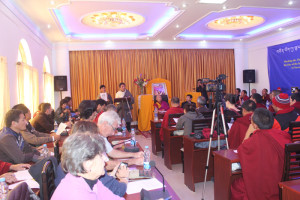
“The works of Tibetan poets are clear, spiritual, open and deep. They displayed the words we took for granted in the daily life, just like the starry sky that I witnessed on my way to Dharamsala last night,” he added.
On the importance of political freedom for the overall well-being of a nation and its people, Chang Ping said, “If a petal of a flower is poisoned, then the whole flower will die.”
Chang Ping, a prominent Chinese journalist and columnist is the former news director of the ground-breaking weekly Southern Weekend. He was removed from the post in 2001 for writing stories that exposed scandals and championed freedom of speech. Later he became deputy editor of Southern Metropolis Weekly but was removed in 2008 after publishing an editorial questioning Chinese government’s censorship of the pan Tibet uprising in the run up to the 2008 Beijing Olympics. In 2011 Chang joined a newly launched Hong Kong-based magazine, iSun Affairs, as chief editor but was denied a visa and has not been allowed return to Hong Kong. He now lives in Germany after being forced to leave China and Hong Kong.
The PEN Tibetan Writers Abroad released two books written in Tibetan language by Tibetan writers from inside Tibet: ‘Dairies of Hardship and Struggle’ written by Labrang Jigme Gyatso (aka Jigme Guri) and ‘The Power of Justice’ by Jado Rinchen.
Labrang Jigmey Gyatso’s book sheds light on the current situation of Tibet, based on his personal diaries and interviews with journalists, but the book was banned from publication in Tibet for having “negative political content.” Labrang Jigme Gyatso was sentenced to five years in prison.
Jado Rinchen’s book was earlier titled, ‘The Unforgettable Red Fire’ but could not be printed and distributed inside Tibet.
Jado Rinchen was arrested and imprisoned for writing a book that documented the real situation of Tibet under the Chinese rule. The Chinese police seized most of his compositions, but the remaining few that survived, including his important work ‘The Power of Justice’ earlier titled ‘The Unforgettable Red Fire’ could not be printed and distributed inside Tibet. The author is suffering from severe physical and mental disability after he was brutally beaten and tortured in prison by the Chinese police.
TCHRD released two publications books: a collection of essays by imprisoned Tibetan writers inside Tibet in Chinese translation titled ‘Who are the Real Splittists?’ and a report in English language on China’s forced resettlement of Tibetan nomads titled, ‘Resettlement is Displacement: A Rights-based Perspective on the Internally Displaced in Tibet’.
Through the event, the organizers said they strive to highlight the fate of Tibetan writers inside Tibet, who are currently imprisoned for exercising their conscience through writing.
“We call upon the Chinese government to immediately release the imprisoned Tibetan writers without any pre-conditions, cease its policies aimed at uprooting and destroying Tibetan religious and cultural identity, and uphold the rights and dignity of the Tibetan people as guaranteed in the Universal Declaration of Human Rights and the international human rights law,” they said in a statement released on the day.
150 PEN Writers Associations are organizing events, including seminars, to highlight the fate of imprisoned writers such as journalist Azimjon Askarov from Kyrgyztan; journalist Gao Yu from China; poet and teacher Mahvas Sabet from Iran; poet and political activist Enoh Meyomesse from Cameroon; and poet and teacher Nelson Aguilera from Paraguay. PEN Writers Associations will officially send letters to the presidents and embassies of these countries, appealing for the immediate release of the imprisoned writers.

